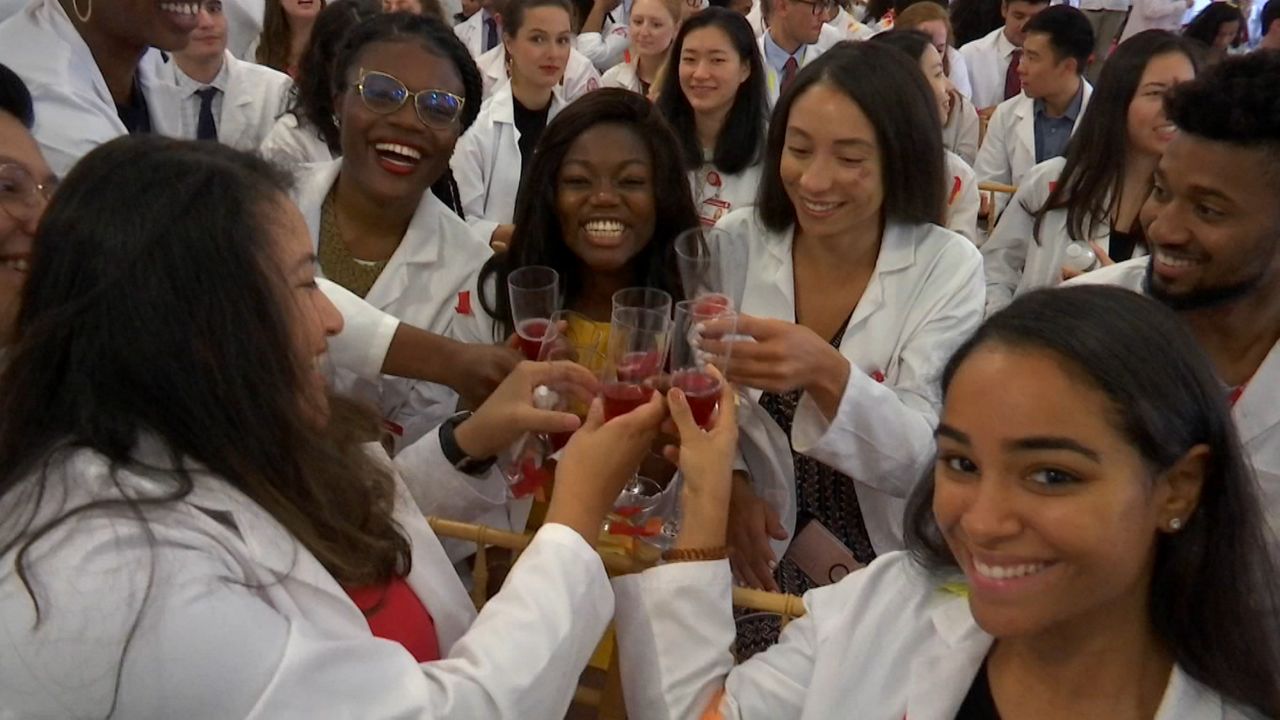Confetti and champagne were flowing to celebrate no more debt for students at Weill Cornell Medicine, Cornell University's medical school.
It costs an average of $90,000 a year in tuition, housing and expenses to attend the med school, which is on the Upper East Side of Manhattan. But a new scholarship program will cover all of those costs for anyone who qualifies for financial aid—meaning students eligible for a loan can graduate without owing any money.
"I am still shaking right now in excitement because I am so happy," said Eseosa Odigie, a medical student at the school.
"Financial burden is a huge stress for our students so what this means is they can go forward with their passions and their talents and their interests,” said Dr. Augustine Choi, the Dean of Weill Cornell Medicine. “Pursue their passion without the stress of financial debt."
NYU's medical school pays the tuition for all students, regardless of need. And Columbia's med school pays the tuition of all students who qualify for aid.
Weill Cornell's program is one of the first to cover all expenses, plus tuition, for qualifying students.
Second-year student Pamela Capellai says it will be life-changing. She's worked two jobs and maxed out her credits cards to put herself through school..
"I don't have to worry about work anymore. I can worry about learning more and going to events and shadowing more doctors, instead of worrying about my shift," said Capellai.
More than half of Weill Cornell's students are expected to qualify for the aid, which is funded by more than $160 million in donations. The school hopes the no-debt promise allows more students to pursue fields like global medicine, rather than high-earning disciplines like plastic surgery.
"Knowing that I have the freedom of choice to decide whatever specialty I want to go into not necessarily based on finances or at least not have to think about that anymore. It alleviates a huge burden for me," said Odigie.
To ensure this program continues, Weill Cornell says it needs to continue raising money—more than $50 million over the next ten years to provide this program for future medical students.
The program will not pay back loans taken out before this academic year.
But upper-class students like Capellai say they are thankful for any help they can get.
"I will repay it as a future physician by being as great as I can to my pateints, because this is really what it is all about," said Capellai.



